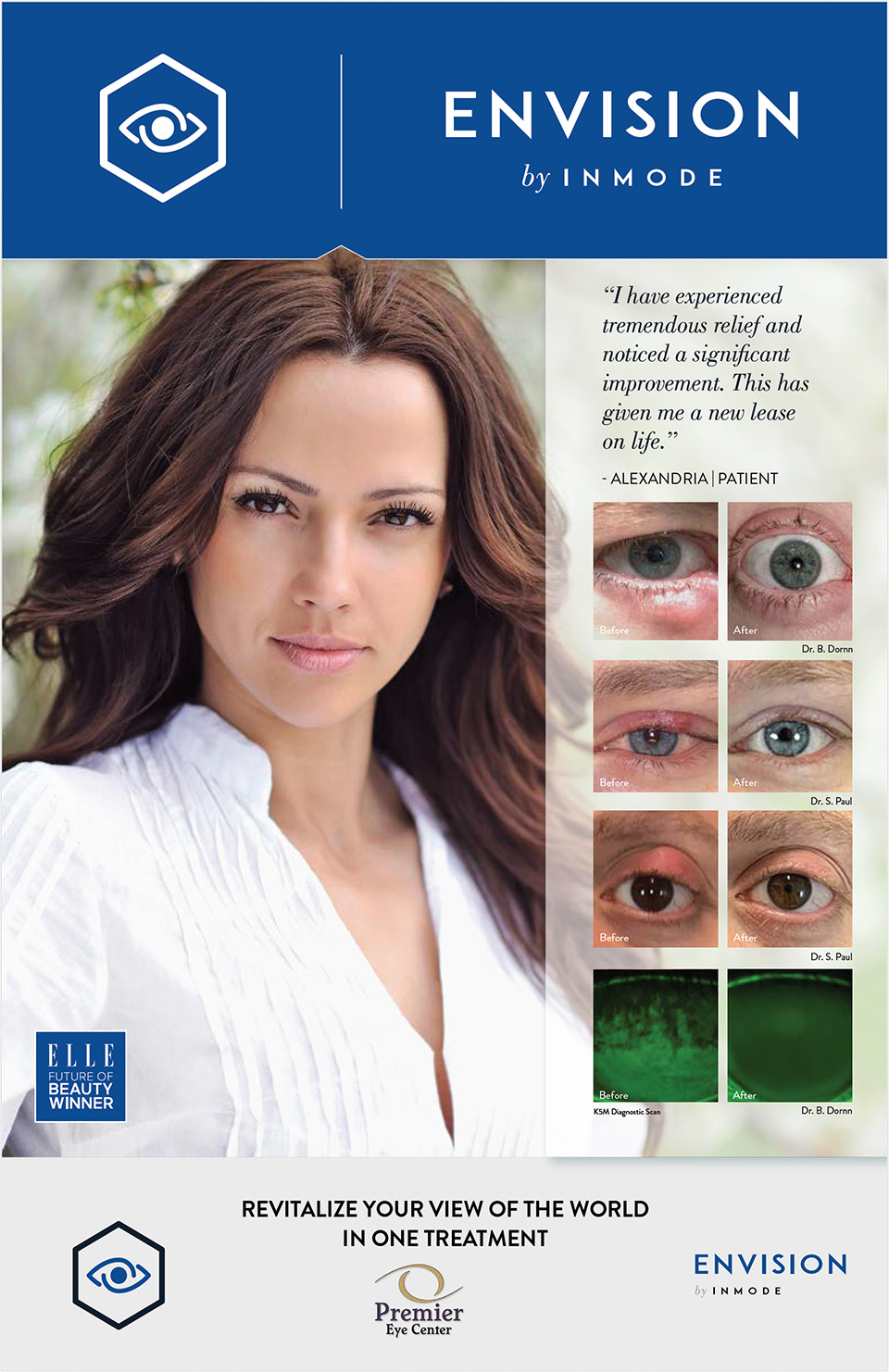Contact Lens Services
Clear, healthy and comfortable are always our goals with contact lenses. There is no set age at which a patient is too young or too old to wear contacts. Utilizing today’s technology we are able to successfully fit many patients whose previous eye doctor told them they were unable to wear contacts. This includes patients who have dry eyes, astigmatism, extremely high prescriptions, kerataconus, presbyopia (over 40 years old and arms are too short) and those who have had eye surgery.

Premier Eye Center maintains a large inventory of diagnostic contact lenses so most patients are able to leave wearing new contacts on the same day as their exam and fitting. We are pleased to offer specialty contact lens designs including SynergEYES hybrid lenses combining the crisp vision of an RGP lens with the comfort of a soft lens as well as scleral contact lenses for difficult to fit corneas. You can read more about scleral contacts on our blog.
Helpful tips for contact lens wear
- Always wash and dry your hands before handling contact lenses. Non-moisturizing soaps are preferred as they do not leave a film on the contacts.
- Use only the products recommended by our doctors. We have selected the best cleaner/storage solution for you based on your prescription, type of contacts and health of your eyes. Saline and rewetting drops are not designed to disinfect lenses.
- Use only fresh solution. NEVER re-use solution.
- Clean the storage case after each use, and keep it open and dry between cleanings.
- Always follow the recommended lens replacement schedule prescribed by our doctors. Waiting until lenses feel irritated means microscopic damage has already occurred to the lens and your eyes.
- It is always best to not sleep in your contacts. If you must, inform our doctors so they can work with you to find the best options available.
- Put on lenses before makeup, lotions or creams to limit the chance of getting those in your eyes or on your contacts. Take lenses out before removing makeup.
- On the rare chance your eyes become red, irritated, painful or your vision becomes blurry, remove the lenses and call our office.



